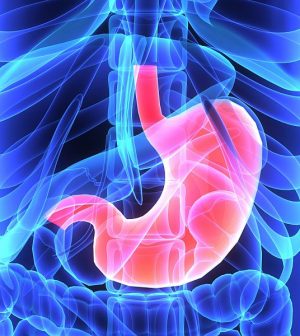- Could Your Grocery Store Meat Be Causing Recurring UTIs?
- Are You Making This Expensive Thermostat Error This Winter?
- Recognizing the Signs of Hypothyroidism
- 10 Strategies to Overcome Insomnia
- Could Artificial Sweeteners Be Aging the Brain Faster?
- Techniques for Soothing Your Nervous System
- Does the Water in Your House Smell Funny? Here’s Why
- Can a Daily Dose of Apple Cider Vinegar Actually Aid Weight Loss?
- 6 Health Beverages That Can Actually Spike Your Blood Sugar
- Treatment Options for Social Anxiety Disorder
Could You Have a Sensitive Gut?

If you’ve ever wondered why emotional distress causes stomach cramps or a mad dash to the bathroom, know that there’s a direct line of communication that runs from your brain to your digestive tract.
It’s called the enteric nervous system, and it can have a powerful effect.
For instance, when you feel nervous or threatened, digestion can slow or stop so that your body can focus on functions with higher priority — and that might result in cramps or diarrhea. This is a hallmark of the condition called irritable bowel syndrome, or IBS.
The brain-gut connection works in both directions. For example, having a digestive condition can make you anxious or cause emotional distress. Plus, that anxiety can then worsen your digestive symptoms.
Researchers recently found a connection between depression and the absence of certain good gut bacteria — they can’t yet say which comes first, but it’s clear that there’s some type of relationship.
If your gut reacts negatively to emotions and it’s affecting your life, talk to your doctor. Find out if you have a digestive issue that’s causing physical as well as emotional stress, such as IBS, and take steps to treat it. These may involve changes to your diet and other lifestyle habits.
Know that the answer doesn’t always have to include drug therapy. To master anxiety regardless of its source, you can tap into relaxation techniques or psychological therapies, from progressive muscle relaxation, relaxation therapy, visualization and soothing music to cognitive behavioral therapy, hypnotherapy or even gut-directed relaxation training, a technique that pairs relaxation with thinking positive thoughts centered on your gut.
More information
The International Foundation for Gastrointestinal Disorders has more on relaxation techniques.
Source: HealthDay
Copyright © 2026 HealthDay. All rights reserved.










